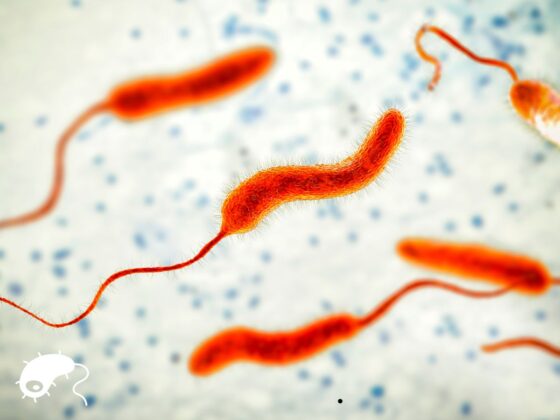 Dr. Vanita Arora, Cardiac Electrophysiologist & Device Specialist, Director & Head, Max Hospital
Dr. Vanita Arora, Cardiac Electrophysiologist & Device Specialist, Director & Head, Max Hospital
Heart failure (HF), sometimes known as congestive heart failure, occurs when your heart muscle doesn’t pump blood as well as it should.
Certain conditions, such as narrowed arteries in your heart (coronary artery disease) or high blood pressure, gradually leave your heart too weak or stiff to fill and pump efficiently. Heart failure can be ongoing (chronic), or your condition may start suddenly (acute).
Many conditions that lead to heart failure can be reversed and treatments are available in form of medical therapy and Device therapy which can improve the signs and symptoms of heart failure, reverse the condition to better, and help you live longer with a better quality of life.
What could be the Symptoms of Heart Failure?
- Shortness of breath (dyspnea) when you exert yourself or when you lie down
- Fatigue and weakness
- Swelling (edema) in your legs, ankles, and feet
- Rapid or irregular heartbeat
- Reduced ability to exercise
- Persistent cough or wheezing with white or pink blood-tinged phlegm
- Chest pain if your heart failure is caused by a heart attack
YOU MAY LIKE TO READ: High Cholesterol Levels In Young Adults Leads To Heart Problems By Middle Age
When to see a doctor?
See your doctor if you think you might be experiencing signs or symptoms of heart failure. Seek emergency treatment if you experience any of the following:
- Chest pain
- Fainting or severe weakness
- Rapid or irregular heartbeat associated with shortness of breath, chest pain, or fainting
- Sudden, severe shortness of breath and coughing up pink, foamy mucus
Although these signs and symptoms may be due to heart failure, there are many other possible causes, including other life-threatening heart and lung conditions. Don’t try to diagnose yourself.
Call the local emergency number for immediate help. Emergency room doctors will try to stabilize your condition and determine if your symptoms are due to heart failure or something else.
If you have a diagnosis of heart failure and if any of the symptoms suddenly become worse or you develop a new sign or symptom, it may mean that existing heart failure is getting worse or not responding to treatment. This may be also the case if you gain 5 pounds (2.3 kg) or more within a few days. Contact your doctor promptly.
Heart Failure: What are the risk factors?
A single risk factor may be enough to cause heart failure, but a combination of factors also increases your risk like
- High blood pressure.
- Coronary artery disease.
- Alcohol use.
- Tobacco use.
- Irregular heartbeats.
Heart Failure: How to reduce the risk?
The key to preventing heart failure is to reduce your risk factors. You can control or eliminate many of the risk factors for heart disease — high blood pressure and coronary artery disease, for example — by making lifestyle changes along with the help of any needed medications.
Lifestyle changes you can make to help prevent heart failure include:
- Not smoking
- Controlling certain conditions, such as high blood pressure and diabetes
- Staying physically active
- Eating healthy foods
- Maintaining a healthy weight
- Reducing and managing stress
After the physical exam, your doctor may also order some of these tests:
- Blood tests.
- Chest X-ray.
- Electrocardiogram (ECG).
- Echocardiogram
- Cardiac computerized tomography (CT) scan
- Magnetic resonance imaging (MRI)
- Coronary angiogram
Treatment
Heart failure is a chronic disease needing lifelong management. However, with treatment, signs, and symptoms of heart failure can improve, and the heart becomes stronger. Treatment may help you live longer and reduce your chance of dying suddenly.
Doctors sometimes can correct heart failure by treating the underlying cause. For example, repairing a heart valve or controlling a fast heart rhythm may reverse heart failure. But for most people, the treatment of heart failure involves a balance of the right medications and, in some cases, the use of devices that help the heartbeat and contract properly.
Medications
Doctors usually treat heart failure with a combination of medications. Depending on your symptoms, you might take one or more medications.
Your doctor may prescribe other heart medications to lower cholesterol or blood-thinning medications to help prevent blood clots along with heart failure medications. Your doctor may need to adjust your doses frequently, especially when you’ve just started a new medication or when your condition is worsening.
You may be hospitalized if you have a flare-up of heart failure symptoms. While in the hospital, you may receive additional medications to help your heart pump better and relieve your symptoms. You may also receive supplemental oxygen through a mask or small tubes placed in your nose. If you have severe heart failure, you may need to use supplemental oxygen long term. In some cases, doctors recommend surgery or cath lab procedure to treat the underlying problem that led to heart failure.
- Coronary bypass surgery.
- Heart valve repair or replacement.
- Implantable cardioverter-defibrillators (ICDs).
- Cardiac resynchronization therapy (CRT), or biventricular pacing.
- Ventricular assist devices (VADs)
- Heart transplant
Role of Cardiac resynchronization therapy (CRT) or biventricular pacing
CRT is a clinically proven treatment option for many individuals with heart failure. Many people with heart failure have problems with their heart’s electrical system that cause their already-weak heart muscle to beat in an uncoordinated fashion. This inefficient muscle contraction may cause heart failure to worsen. A CRT device sends small electrical impulses to both lower chambers of the heart to help them beat together in a more synchronized pattern. CRT improves the heart’s ability to pump blood and oxygen to your body in specifically and carefully selected patients of heart failure.
Often a biventricular pacemaker is combined with an ICD for people with heart failure to prevent sudden cardiac death and this combination therapy is called Combo device.











